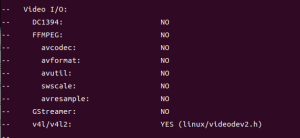第一种
llist.h
#ifndef __LLIST_H__ #define __LLIST_H__ #define LLIST_FORWARD 1 #define LLIST_BACKWARD 2 typedef void llist_op(void *); typedef int llist_cmp(const void *,const void *); struct llist_node_st { void *data; struct llist_node_st *prev,*next; }; typedef struct { int size; struct llist_node_st head; }LLIST; LLIST *llist_create(int size); int llist_insert(LLIST *, const void *data, int mode); void *llist_find(LLIST *,const void *key,llist_cmp *cmp); int llist_delete(LLIST *,const void *key,llist_cmp *cmp ); int llist_fetch(LLIST *,const void *key,llist_cmp *cmp, void *data ); void llist_travel(LLIST *,llist_op *op); void llist_destroy(LLIST *); #endif
llist.c
#include <stdio.h>
#include <stdlib.h>
#include <string.h>
#include "llist.h"
LLIST *llist_create(int size)
{
LLIST *ptr;
ptr = malloc(sizeof(*ptr));
if(ptr == NULL)
return NULL;
ptr->size = size;
ptr->head.data = NULL;
ptr->head.prev = ptr->head.next = &ptr->head;
return ptr;
}
int llist_insert(LLIST *ptr, const void *data, int mode)
{
struct llist_node_st *newnode;
newnode = malloc(sizeof(*newnode));
if(newnode == NULL)
return -1;
newnode->data = malloc(ptr->size);
if(newnode->data == NULL)
{
free(newnode);
return -2;
}
memcpy(newnode->data, data, ptr->size);
if(mode == LLIST_FORWARD)
{
newnode->prev = &ptr->head;
newnode->next = ptr->head.next;
}
else
{
if(mode == LLIST_BACKWARD)
{
newnode->next = &ptr->head;
newnode->prev = ptr->head.prev;
}
else
return -3;
}
newnode->prev->next = newnode;
newnode->next->prev = newnode;
return 0;
}
static struct llist_node_st *find_(LLIST *ptr,const void *key,llist_cmp *cmp)
{
struct llist_node_st *cur;
for(cur = ptr->head.next ; cur != &ptr->head ; cur = cur->next)
if(cmp(cur->data,key) == 0)
break;
return cur;
}
void *llist_find(LLIST *ptr,const void *key,llist_cmp *cmp)
{
return find_(ptr,key,cmp)->data;
}
int llist_delete(LLIST *ptr,const void *key,llist_cmp *cmp )
{
struct llist_node_st *node;
node = find_(ptr,key,cmp);
if(node == &ptr->head)
return -1;
node->next->prev = node->prev;
node->prev->next = node->next;
free(node->data);
free(node);
return 0;
}
int llist_fetch(LLIST *ptr,const void *key,llist_cmp *cmp ,void *data)
{
struct llist_node_st *node;
node = find_(ptr,key,cmp);
if(node == &ptr->head)
return -1;
node->next->prev = node->prev;
node->prev->next = node->next;
memcpy(data,node->data,ptr->size);
free(node->data);
free(node);
return 0;
}
void llist_travel(LLIST *ptr,llist_op *op)//print_s
{
struct llist_node_st *cur;
for(cur = ptr->head.next ; cur != &ptr->head ; cur = cur->next)
op(cur->data);
}
void llist_destroy(LLIST *ptr)
{
struct llist_node_st *cur,*next;
for(cur = ptr->head.next ; cur != &ptr->head ; cur = next)
{
next = cur->next;
free(cur->data);
free(cur);
}
free(ptr);
}
main.c
#include
#include
#include
#include "llist.h"
#define NAMESIZE 32
struct score
{
int id;
char name[NAMESIZE];
int math;
};
int id_cmp(const void *data,const void *key)
{
const struct score *d = data;
const int *id = key;
return d->id - *id;
}
int name_cmp(const void *data,const void *key)
{
const struct score *d = data;
const char *name = key;
return strcmp(d->name ,name);
}
void print_s(void *data)
{
struct score *d = data;
printf("%d %s %d\n",d->id,d->name,d->math);
}
int main()
{
LLIST *handler;
struct score tmp;
int i;
handler = llist_create(sizeof(struct score));
if(handler == NULL)
{
printf("llist_create() error.\n");
exit(1);
}
for(i = 0 ;i < 6; i++)
{
tmp.id = i;
snprintf(tmp.name,NAMESIZE,"Stu%d",i);
tmp.math = 100-i;
llist_insert(handler,&tmp,LLIST_BACKWARD);
}
llist_travel(handler, print_s);
printf("\n");
int id = 1;
char *name = "stu2";
int math = 100;
void *retp;
// llist_delete(handler,&id,id_cmp);
if(llist_fetch(handler,&id,id_cmp,&tmp) == 0)
print_s(&tmp);
printf("\n");
llist_travel(handler, print_s);
/*
// retp = llist_find(handler,&id,id_cmp);
retp = llist_find(handler,name,name_cmp);
if(retp == NULL)
printf("Can not find!\n");
else
print_s(retp);
*/
llist_destroy(handler);
exit(0);
}
第二种 数据可变长
llist.h
#ifndef __LLIST_H__
#define __LLIST_H__
#define LLIST_FORWARD 1
#define LLIST_BACKWARD 2
typedef void llist_op(void *);
typedef int llist_cmp(const void *,const void *);
struct llist_node_st
{
struct llist_node_st *prev,*next;
char data[1];
};
typedef struct
{
int size;
struct llist_node_st head;
}LLIST;
LLIST *llist_create(int size);
int llist_insert(LLIST *, const void *data, int mode);
void *llist_find(LLIST *,const void *key,llist_cmp *cmp);
int llist_delete(LLIST *,const void *key,llist_cmp *cmp );
int llist_fetch(LLIST *,const void *key,llist_cmp *cmp, void *data );
void llist_travel(LLIST *,llist_op *op);
void llist_destroy(LLIST *);
#endif
llist.c
#include <stdio.h>
#include <stdlib.h>
#include <string.h>
#include "llist.h"
LLIST *llist_create(int size)
{
LLIST *ptr;
ptr = malloc(sizeof(*ptr));
if(ptr == NULL)
return NULL;
ptr->size = size;
ptr->head.prev = ptr->head.next = &ptr->head;
return ptr;
}
int llist_insert(LLIST *ptr, const void *data, int mode)
{
struct llist_node_st *newnode;
newnode = malloc(sizeof(*newnode)+ptr->size);
if(newnode == NULL)
return -1;
memcpy(newnode->data, data, ptr->size);
if(mode == LLIST_FORWARD)
{
newnode->prev = &ptr->head;
newnode->next = ptr->head.next;
}
else
{
if(mode == LLIST_BACKWARD)
{
newnode->next = &ptr->head;
newnode->prev = ptr->head.prev;
}
else
return -3;
}
newnode->prev->next = newnode;
newnode->next->prev = newnode;
return 0;
}
static struct llist_node_st *find_(LLIST *ptr,const void *key,llist_cmp *cmp)
{
struct llist_node_st *cur;
for(cur = ptr->head.next ; cur != &ptr->head ; cur = cur->next)
if(cmp(cur->data,key) == 0)
break;
return cur;
}
void *llist_find(LLIST *ptr,const void *key,llist_cmp *cmp)
{
struct llist_node_st *node;
node = find_(ptr,key,cmp);
if(node == &ptr->head)
return NULL;
return node->data;
}
int llist_delete(LLIST *ptr,const void *key,llist_cmp *cmp )
{
struct llist_node_st *node;
node = find_(ptr,key,cmp);
if(node == &ptr->head)
return -1;
node->next->prev = node->prev;
node->prev->next = node->next;
free(node);
return 0;
}
int llist_fetch(LLIST *ptr,const void *key,llist_cmp *cmp ,void *data)
{
struct llist_node_st *node;
node = find_(ptr,key,cmp);
if(node == &ptr->head)
return -1;
node->next->prev = node->prev;
node->prev->next = node->next;
memcpy(data,node->data,ptr->size);
free(node);
return 0;
}
void llist_travel(LLIST *ptr,llist_op *op)//print_s
{
struct llist_node_st *cur;
for(cur = ptr->head.next ; cur != &ptr->head ; cur = cur->next)
op(cur->data);
}
void llist_destroy(LLIST *ptr)
{
struct llist_node_st *cur,*next;
for(cur = ptr->head.next ; cur != &ptr->head ; cur = next)
{
next = cur->next;
free(cur);
}
free(ptr);
}
main.c
#include <stdio.h>
#include <stdlib.h>
#include <string.h>
#include "llist.h"
#define NAMESIZE 32
struct score
{
int id;
char name[NAMESIZE];
int math;
};
int id_cmp(const void *data,const void *key)
{
const struct score *d = data;
const int *id = key;
return d->id - *id;
}
int name_cmp(const void *data,const void *key)
{
const struct score *d = data;
const char *name = key;
return strcmp(d->name ,name);
}
void print_s(void *data)
{
struct score *d = data;
printf("%d %s %d\n",d->id,d->name,d->math);
}
int main()
{
LLIST *handler;
struct score tmp;
int i;
handler = llist_create(sizeof(struct score));
if(handler == NULL)
{
printf("llist_create() error.\n");
exit(1);
}
for(i = 0 ;i < 6; i++)
{
tmp.id = i;
snprintf(tmp.name,NAMESIZE,"Stu%d",i);
tmp.math = 100-i;
llist_insert(handler,&tmp,LLIST_BACKWARD);
}
llist_travel(handler, print_s);
printf("\n");
int id = 1;
char *name = "stu2";
int math = 100;
void *retp;
// llist_delete(handler,&id,id_cmp);
if(llist_fetch(handler,&id,id_cmp,&tmp) == 0)
print_s(&tmp);
printf("\n");
llist_travel(handler, print_s);
/*
// retp = llist_find(handler,&id,id_cmp);
retp = llist_find(handler,name,name_cmp);
if(retp == NULL)
printf("Can not find!\n");
else
print_s(retp);
*/
llist_destroy(handler);
exit(0);
}
第三种 最常用 封装隐藏struct
llist.h
#ifndef __LLIST_H__
#define __LLIST_H__
typedef void LLIST;
#define LLIST_FORWARD 1
#define LLIST_BACKWARD 2
typedef void llist_op(void *);
typedef int llist_cmp(const void *,const void *);
LLIST *llist_create(int size);
int llist_insert(LLIST *, const void *data, int mode);
void *llist_find(LLIST *,const void *key,llist_cmp *cmp);
int llist_delete(LLIST *,const void *key,llist_cmp *cmp );
int llist_fetch(LLIST *,const void *key,llist_cmp *cmp, void *data );
void llist_travel(LLIST *,llist_op *op);
void llist_destroy(LLIST *);
#endif
llist.c
#include <stdio.h>
#include <stdlib.h>
#include <string.h>
#include "llist.h"
#include "llist.h"
struct llist_node_st
{
struct llist_node_st *prev,*next;
char data[1];
};
struct llist_head_st
{
int size;
struct llist_node_st head;
};
LLIST *llist_create(int size)
{
struct llist_head_st *ptr;
ptr = malloc(sizeof(*ptr));
if(ptr == NULL)
return NULL;
ptr->size = size;
ptr->head.prev = ptr->head.next = &ptr->head;
return ptr;
}
int llist_insert(LLIST *p, const void *data, int mode)
{
struct llist_head_st *ptr = p;
struct llist_node_st *newnode;
newnode = malloc(sizeof(*newnode)+ptr->size);
if(newnode == NULL)
return -1;
memcpy(newnode->data, data, ptr->size);
if(mode == LLIST_FORWARD)
{
newnode->prev = &ptr->head;
newnode->next = ptr->head.next;
}
else
{
if(mode == LLIST_BACKWARD)
{
newnode->next = &ptr->head;
newnode->prev = ptr->head.prev;
}
else
return -3;
}
newnode->prev->next = newnode;
newnode->next->prev = newnode;
return 0;
}
static struct llist_node_st *find_(struct llist_head_st *ptr,const void *key,llist_cmp *cmp)
{
struct llist_node_st *cur;
for(cur = ptr->head.next ; cur != &ptr->head ; cur = cur->next)
if(cmp(cur->data,key) == 0)
break;
return cur;
}
void *llist_find(LLIST *p,const void *key,llist_cmp *cmp)
{
struct llist_head_st *ptr = p;
struct llist_node_st *node;
node = find_(ptr,key,cmp);
if(node == &ptr->head)
return NULL;
return node->data;
}
int llist_delete(LLIST *p,const void *key,llist_cmp *cmp )
{
struct llist_node_st *node;
struct llist_head_st *ptr = p;
node = find_(ptr,key,cmp);
if(node == &ptr->head)
return -1;
node->next->prev = node->prev;
node->prev->next = node->next;
free(node);
return 0;
}
int llist_fetch(LLIST *p,const void *key,llist_cmp *cmp ,void *data)
{
struct llist_head_st *ptr = p;
struct llist_node_st *node;
node = find_(ptr,key,cmp);
if(node == &ptr->head)
return -1;
node->next->prev = node->prev;
node->prev->next = node->next;
memcpy(data,node->data,ptr->size);
free(node);
return 0;
}
void llist_travel(LLIST *p,llist_op *op)//print_s
{
struct llist_head_st *ptr = p;
struct llist_node_st *cur;
for(cur = ptr->head.next ; cur != &ptr->head ; cur = cur->next)
op(cur->data);
}
void llist_destroy(LLIST *p)
{
struct llist_head_st *ptr = p;
struct llist_node_st *cur,*next;
for(cur = ptr->head.next ; cur != &ptr->head ; cur = next)
{
next = cur->next;
free(cur);
}
free(ptr);
}
main.c
#include <stdio.h>
#include <stdlib.h>
#include <string.h>
#include "llist.h"
#define NAMESIZE 32
struct score
{
int id;
char name[NAMESIZE];
int math;
};
int id_cmp(const void *data,const void *key)
{
const struct score *d = data;
const int *id = key;
return d->id - *id;
}
int name_cmp(const void *data,const void *key)
{
const struct score *d = data;
const char *name = key;
return strcmp(d->name ,name);
}
void print_s(void *data)
{
struct score *d = data;
printf("%d %s %d\n",d->id,d->name,d->math);
}
int main()
{
LLIST *handler;
struct score tmp;
int i;
handler = llist_create(sizeof(struct score));
if(handler == NULL)
{
printf("llist_create() error.\n");
exit(1);
}
for(i = 0 ;i < 6; i++)
{
tmp.id = i;
snprintf(tmp.name,NAMESIZE,"Stu%d",i);
tmp.math = 100-i;
llist_insert(handler,&tmp,LLIST_BACKWARD);
}
llist_travel(handler, print_s);
printf("\n");
int id = 1;
char *name = "stu2";
int math = 100;
void *retp;
// llist_delete(handler,&id,id_cmp);
if(llist_fetch(handler,&id,id_cmp,&tmp) == 0)
print_s(&tmp);
printf("\n");
llist_travel(handler, print_s);
/*
// retp = llist_find(handler,&id,id_cmp);
retp = llist_find(handler,name,name_cmp);
if(retp == NULL)
printf("Can not find!\n");
else
print_s(retp);
*/
llist_destroy(handler);
exit(0);
}
第四种 函数指针传参
llist.h
#ifndef __LLIST_H__
#define __LLIST_H__
#define LLIST_FORWARD 1
#define LLIST_BACKWARD 2
typedef void llist_op(void *);
typedef int llist_cmp(const void *,const void *);
struct llist_node_st
{
struct llist_node_st *prev,*next;
char data[1];
};
typedef struct llist_head_st
{
int size;
struct llist_node_st head;
int (*insert)(struct llist_head_st *, const void *data, int mode);
void *(*find)(struct llist_head_st *,const void *key,llist_cmp *cmp);
int (*delete)(struct llist_head_st *,const void *key,llist_cmp *cmp );
int (*fetch)(struct llist_head_st *,const void *key,llist_cmp *cmp, void *data );
void (*travel)(struct llist_head_st *,llist_op *op);
}LLIST;
LLIST *llist_create(int size);
void llist_destroy(LLIST *);
#endif
llist.c
#include <stdio.h>
#include <stdlib.h>
#include <string.h>
#include "llist.h"
int llist_insert(LLIST *, const void *data, int mode);
void *llist_find(LLIST *,const void *key,llist_cmp *cmp);
int llist_delete(LLIST *,const void *key,llist_cmp *cmp );
int llist_fetch(LLIST *,const void *key,llist_cmp *cmp, void *data );
void llist_travel(LLIST *,llist_op *op);
LLIST *llist_create(int size)
{
LLIST *ptr;
ptr = malloc(sizeof(*ptr));
if(ptr == NULL)
return NULL;
ptr->size = size;
ptr->head.prev = ptr->head.next = &ptr->head;
ptr->insert = llist_insert;
ptr->delete = llist_delete;
ptr->fetch = llist_fetch;
ptr->find = llist_find;
ptr->travel = llist_travel;
return ptr;
}
int llist_insert(LLIST *ptr, const void *data, int mode)
{
struct llist_node_st *newnode;
newnode = malloc(sizeof(*newnode)+ptr->size);
if(newnode == NULL)
return -1;
memcpy(newnode->data, data, ptr->size);
if(mode == LLIST_FORWARD)
{
newnode->prev = &ptr->head;
newnode->next = ptr->head.next;
}
else
{
if(mode == LLIST_BACKWARD)
{
newnode->next = &ptr->head;
newnode->prev = ptr->head.prev;
}
else
return -3;
}
newnode->prev->next = newnode;
newnode->next->prev = newnode;
return 0;
}
static struct llist_node_st *find_(LLIST *ptr,const void *key,llist_cmp *cmp)
{
struct llist_node_st *cur;
for(cur = ptr->head.next ; cur != &ptr->head ; cur = cur->next)
if(cmp(cur->data,key) == 0)
break;
return cur;
}
void *llist_find(LLIST *ptr,const void *key,llist_cmp *cmp)
{
struct llist_node_st *node;
node = find_(ptr,key,cmp);
if(node == &ptr->head)
return NULL;
return node->data;
}
int llist_delete(LLIST *ptr,const void *key,llist_cmp *cmp )
{
struct llist_node_st *node;
node = find_(ptr,key,cmp);
if(node == &ptr->head)
return -1;
node->next->prev = node->prev;
node->prev->next = node->next;
free(node);
return 0;
}
int llist_fetch(LLIST *ptr,const void *key,llist_cmp *cmp ,void *data)
{
struct llist_node_st *node;
node = find_(ptr,key,cmp);
if(node == &ptr->head)
return -1;
node->next->prev = node->prev;
node->prev->next = node->next;
memcpy(data,node->data,ptr->size);
free(node);
return 0;
}
void llist_travel(LLIST *ptr,llist_op *op)//print_s
{
struct llist_node_st *cur;
for(cur = ptr->head.next ; cur != &ptr->head ; cur = cur->next)
op(cur->data);
}
void llist_destroy(LLIST *ptr)
{
struct llist_node_st *cur,*next;
for(cur = ptr->head.next ; cur != &ptr->head ; cur = next)
{
next = cur->next;
free(cur);
}
free(ptr);
}
main.c
#include <stdio.h>
#include <stdlib.h>
#include <string.h>
#include "llist.h"
#define NAMESIZE 32
struct score
{
int id;
char name[NAMESIZE];
int math;
};
int id_cmp(const void *data,const void *key)
{
const struct score *d = data;
const int *id = key;
return d->id - *id;
}
int name_cmp(const void *data,const void *key)
{
const struct score *d = data;
const char *name = key;
return strcmp(d->name ,name);
}
void print_s(void *data)
{
struct score *d = data;
printf("%d %s %d\n",d->id,d->name,d->math);
}
int main()
{
LLIST *handler;
struct score tmp;
int i;
handler = llist_create(sizeof(struct score));
if(handler == NULL)
{
printf("llist_create() error.\n");
exit(1);
}
for(i = 0 ;i < 6; i++)
{
tmp.id = i;
snprintf(tmp.name,NAMESIZE,"Stu%d",i);
tmp.math = 100-i;
handler->insert(handler,&tmp,LLIST_BACKWARD);
}
handler->travel(handler, print_s);
printf("\n");
int id = 1;
char *name = "stu2";
int math = 100;
void *retp;
// llist_delete(handler,&id,id_cmp);
if(handler->fetch(handler,&id,id_cmp,&tmp) == 0)
print_s(&tmp);
printf("\n");
handler->travel(handler, print_s);
/*
// retp = llist_find(handler,&id,id_cmp);
retp = llist_find(handler,name,name_cmp);
if(retp == NULL)
printf("Can not find!\n");
else
print_s(retp);
*/
llist_destroy(handler);
exit(0);
}
第五种 大佬级别 LINUX内核链表代码 kernel
llist.h
#ifndef __LIST_H__
#define __LIST_H__
struct list_head
{
struct list_head *prev,*next;
};
#define LIST_HEAD_INIT(name) { &(name), &(name) }
#define LIST_HEAD(name) \
struct list_head name = LIST_HEAD_INIT(name)
static inline void __list_add(struct list_head *new,
struct list_head *prev,
struct list_head *next)
{
next->prev = new;
new->next = next;
new->prev = prev;
prev->next = new;
}
static inline void list_add(struct list_head *new, struct list_head *head)
{
__list_add(new, head, head->next);
}
static inline void list_add_tail(struct list_head *new, struct list_head *head)
{
__list_add(new, head->prev, head);
}
#define list_for_each(pos, head) \
for (pos = (head)->next; pos != (head); pos = pos->next)
/*
* list_entry - get the struct for this entry
* @ptr: the &struct list_head pointer.
* @type: the type of the struct this is embedded in.
* @member: the name of the list_head within the struct.
*/
#define offsetof(TYPE, MEMBER) ((size_t)&((TYPE *)0)->MEMBER)
#define container_of(ptr, type, member) ({ \
const typeof( ((type *)0)->member ) *__mptr = (ptr); \
(type *)( (char *)__mptr - offsetof(type,member) );})
#define list_entry(ptr, type, member) \
container_of(ptr, type, member)
#endif
main.c
#include <stdio.h>
#include <stdlib.h>
#include <string.h>
#include "list.h"
#define NAMESIZE 32
struct score
{
int id;
char name[NAMESIZE];
int math;
struct list_head node;
};
void print_s(void *data)
{
struct score *d = data;
printf("%d %s %d\n",d->id,d->name,d->math);
}
int main()
{
struct score *tmp;
struct list_head *cur;
int i;
LIST_HEAD(head);
for(i = 0 ;i < 6; i++)
{
tmp = malloc(sizeof(*tmp));
/*if error*/
tmp->id = i;
snprintf(tmp->name,NAMESIZE,"Stu%d",i);
tmp->math = 100-i;
list_add_tail(&tmp->node ,&head);
}
list_for_each(cur, &head)
{
tmp = list_entry(cur, struct score, node);
print_s(tmp);
}
exit(0);
}
© 版权声明
转载请注明出处,并标明原文链接。
本网站尊重知识产权,如有侵权,请及时联系我们删除。
本站所有原创内容仅用于学习和交流目的,未经作者和本站授权不得进行商业使用或盈利行为。
本网站尊重知识产权,如有侵权,请及时联系我们删除。
本站所有原创内容仅用于学习和交流目的,未经作者和本站授权不得进行商业使用或盈利行为。
THE END










暂无评论内容